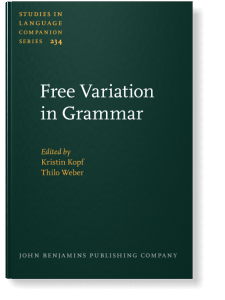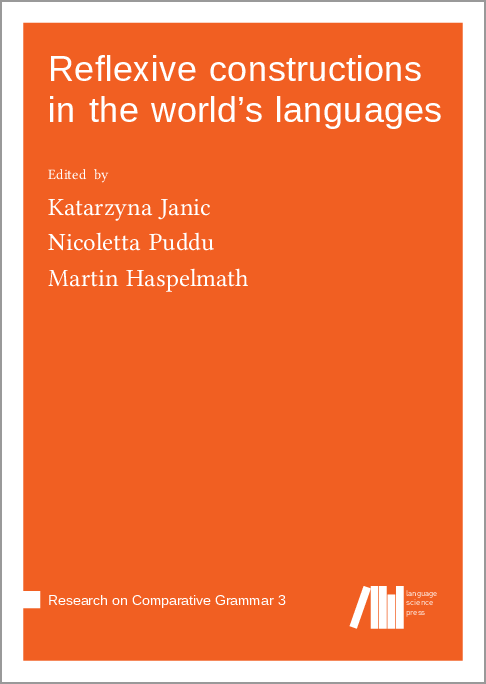In der letzten Zeit sind u.a. diese frei verfügbaren Titel erschienen:
Free variation in grammar: Empirical and theoretical approaches
Kristin Kopf & Thilo Weber (Hrsg.)
https://benjamins.com/catalog/slcs.234
Recent years have seen a growing interest in grammatical variation, a core explanandum of grammatical theory. The present volume explores questions that are fundamental to this line of research: First, the question of whether variation can always and completely be explained by intra- or extra-linguistic predictors, or whether there is a certain amount of unpredictable – or ‘free’ – grammatical variation. Second, the question of what implications the (in-)existence of free variation would hold for our theoretical models and the empirical study of grammar. The volume provides the first dedicated book-length treatment of this long-standing topic. Following an introductory chapter by the editors, it contains ten case studies on potentially free variation in morphology and syntax drawn from Germanic, Romance, Uralic and Mayan.
Lexical anaphora: a corpus-based typological study of referential choice
Nils Norman Schiborr
https://doi.org/10.20378/irb-59773
Whenever speakers refer to entities or events, they are tasked with making a series of decisions: which entity to refer to, how to embed it into syntactic structures, and which type of expression to use for the reference. This study concerns itself with the last of these decisions, the selection of the linguistic exponents of reference, or referential choice. While it is well known that languages differ greatly in their preference for either pronominal (she, this) or zero anaphora (ellipsis) to refer back to previously mentioned discourse referents, the overall rates of occurrence of lexically-headed anaphora (the woman, Jane) in monological discourse turn out to be remarkably stable across languages.
This study examines the circumstances in which speakers opt for the more informative but less econominal choice of lexical references over reduced alternatives. It does so from a typological and comparative angle, charting the cross-linguistic stability of certain classes of explanatory factors and the parametricization of others across languages. Rather than adopting a specific theoretical framework in its approach to the question, it instead explores a number of empirical bottom-up approaches, deriving complex analytical categories from multiple levels of relatively basic annotations. Where earlier research on referential choice has been focused predominantly based on written data, or else on small data sets of spoken language from English and other overrepresented languages, this study addresses issues of typological representativity by employing spoken corpora from a diverse set of ten languages, many of which are understudied and endangered.
Reflexive constructions in the world’s languages
https://langsci-press.org/catalog/book/284
https://doi.org/10.5281/zenodo.7861660
This landmark publication brings together 28 papers on reflexive constructions in languages from all continents, representing very diverse language types. While reflexive constructions have been discussed in the past from a variety of angles, this is the first edited volume of its kind. All the chapters are based on original data, and they are broadly comparable through a common terminological framework. The volume opens with two introductory chapters by the editors that set the stage and lay out the main comparative concepts, and it concludes with a chapter presenting generalizations on the basis of the studies of individual languages.



